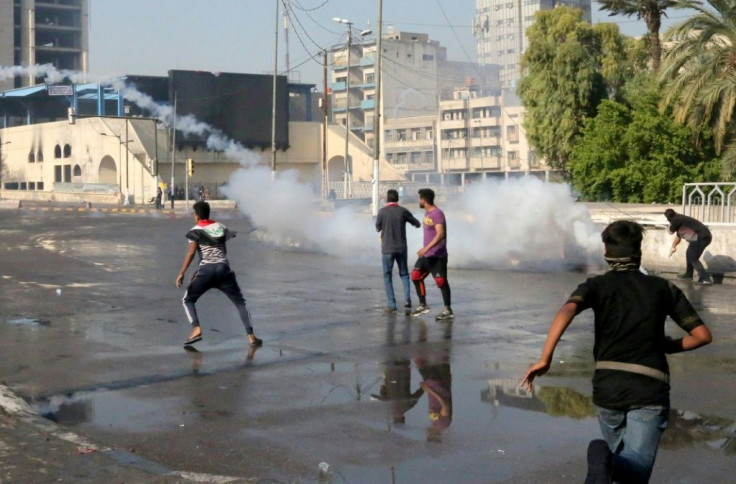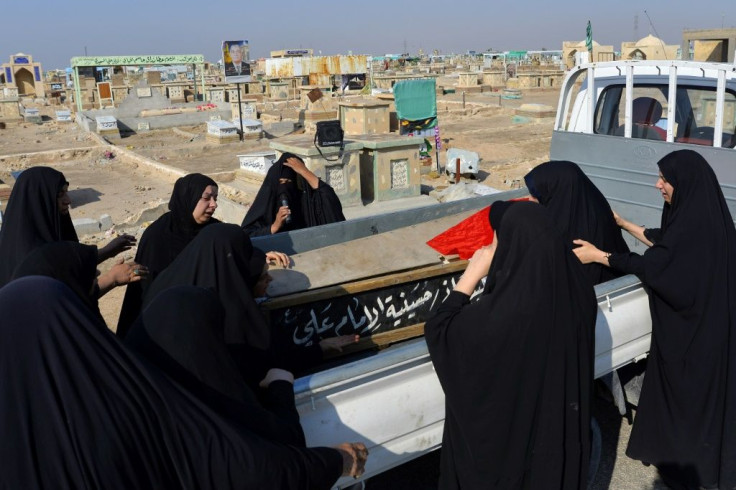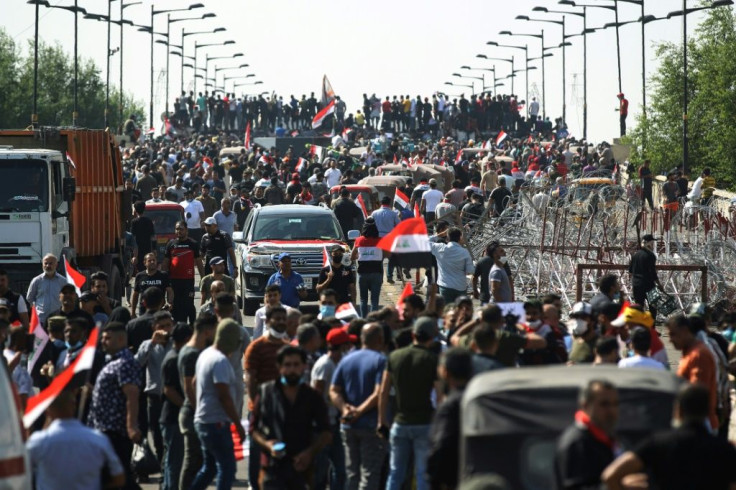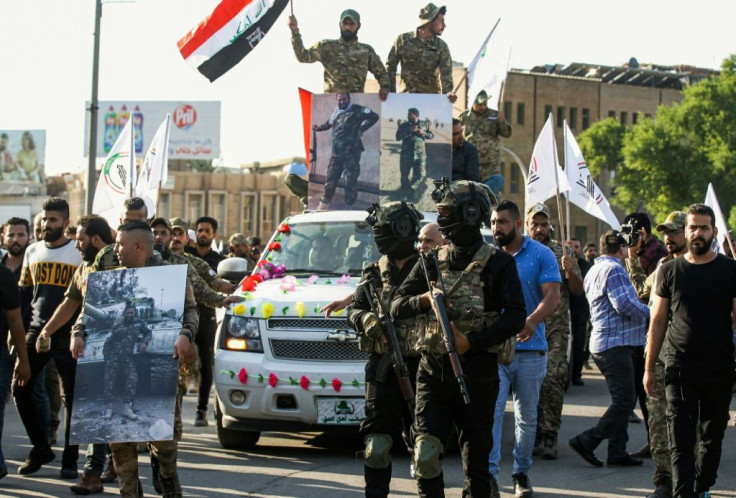Sit-in Ups Pressure On Iraq Govt Amid Relentless Protests

The Iraqi government faced more pressure late Saturday from a surprise sit-in by lawmakers linked to populist cleric Moqtada al-Sadr amid persistent mass protests across the country.
Thousands of Iraqis returned to the streets in the capital Baghdad and across the south over the last two days, defying curfews and violence that has left over 60 dead.
Sadr, a firebrand former militia leader, has thrown his weight behind the protests by demanding the government resign and Iraq hold early parliamentary elections.
Saturday night, members of his Saeroon bloc -- parliament's largest with 54 MPs -- escalated the situation.

MP Badr al-Zayadi said they had begun an open-ended "sit-in, until the enactment of all reforms the Iraqi people are demanding."
Zayadi told AFP the bloc had sent an "official request" to Iraq's president, who according to the constitution can ask parliament to withdraw confidence from the premier.
The move has put Prime Minister Adel Abdel Mahdi under more pressure than ever as Saeroon was one of the two main sponsors of his government.

He faced relentless protests on Friday despite efforts in Baghdad and across the south to clamp down on them.
Late Saturday, street lights were turned off around Baghdad's Tahrir (Liberation) square, plunging protesters clinging onto their positions there into darkness.

Witnesses said security forces were unleashing volleys of tear gas to clear the crowds, each canister lighting up the smoke-filled square with flashes of light.
Explosions could be heard from the square well past midnight.

Vows of 'revenge'
In the south, rallies continued in Diwaniyah, Nasiriyah, Babylon and Najaf.
They have taken a dangerous new turn in recent days as protesters torched dozens of provincial government buildings and offices tied to the powerful Hashed al-Shaabi paramilitary force.
The latest round of demonstrations has been notably violent, with 63 people killed and more than 2,000 wounded over just two days, according to the Iraqi Human Rights Commission.

That has pushed the death toll for so far this month to 220.
Top Hashed commanders have threatened revenge after their offices were attacked, and denounced those they said aimed at sowing "discord and chaos" in the country.

Hashed was founded in 2014 to fight the Islamic State group but its factions have since been ordered to incorporate into the state security services.
"Public anger is directed at them in addition to governorate councils, for they were the obvious face of 'the regime'," wrote Harith Hasan, a senior fellow at the Carnegie Middle East Center.
But the attacks could also hint at political rivalries between the Hashed and Sadr.
"The Sadrists, especially in their traditional strongholds such as Missan, saw this an opportunity to act against competing militias," such as Asaib Ahl al-Haq, Badr and Kataeb Hezbollah, Hasan said on Twitter.
The United Nations said it was "tragic" to see renewed violence but also warned against "armed spoilers".
"Armed entities sabotaging the peaceful demonstrations, eroding the government's credibility and ability to act, cannot be tolerated," said the UN top official in Iraq, Jeanine Hennis-Plasschaert.
'It's enough!'
Oil-rich Iraq is OPEC's second biggest producer but one in five people live below the poverty line and youth unemployment stands at 25 percent, according to the World Bank.
About 60 percent of Iraq's 40-million-strong population is under the age of 25.
The staggering rates of joblessness and graft allegations have been at the root of protesters' anger, which the government has struggled to quell.
Abdel Mahdi has proposed a laundry list of reforms, including hiring drives, increased pensions and a cabinet reshuffle.
New education and health ministers were approved by parliament earlier this month, the only time it was able to meet since protests began.
But a scheduled meeting of parliament on Saturday to discuss the latest protests failed to take place due to a lack of a quorum.
Protesters so far have seemed unimpressed by the government's efforts.
"They told people: 'Go home, we'll give you pensions and come up with a solution'. They tricked us," said one of the rare woman protesters on Saturday, her young son at her side.
Some protesters have directed some of their anger at Sadr and the country's top Shiite religious authority, Grand Ayatollah Ali al-Sistani, who is deeply revered among most Iraqis.
"Sadr, Sistani -- this is a shame," a protester in Tahrir said on Saturday.
© Copyright AFP 2024. All rights reserved.





















